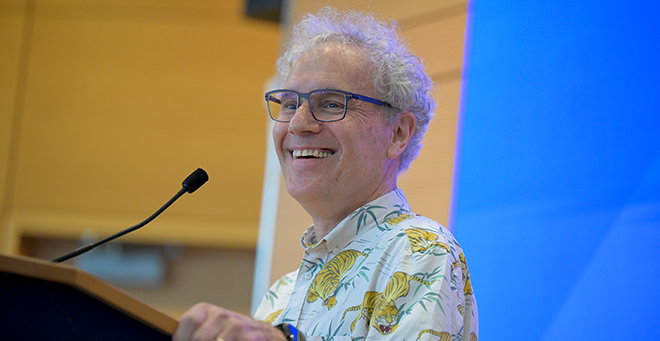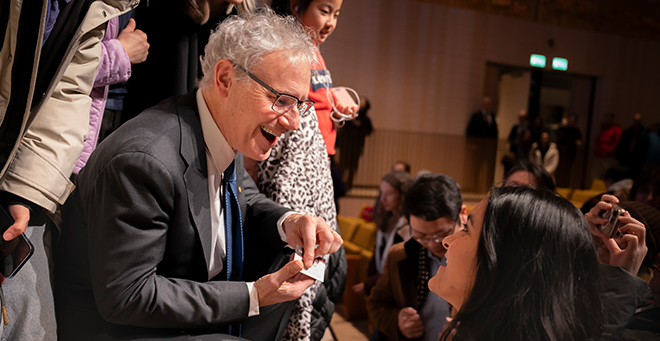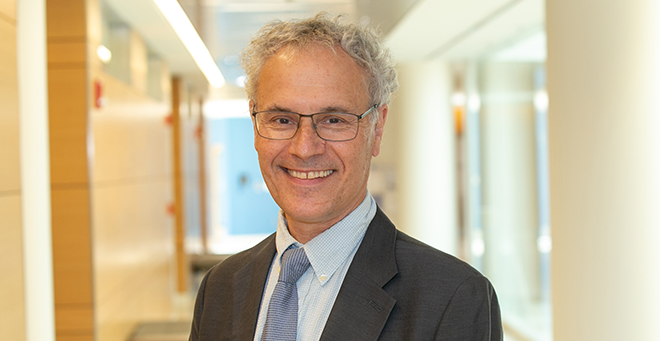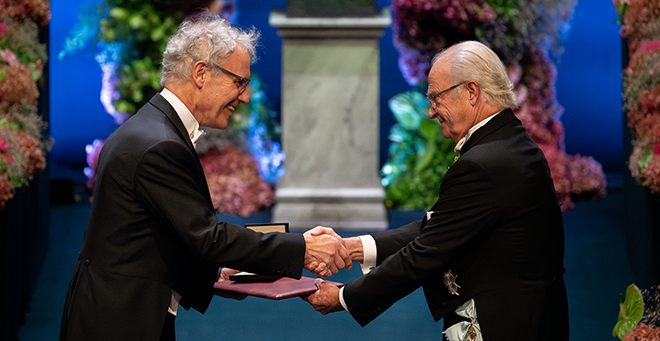
© Nobel Prize Outreach. Photo: Nanaka Adachi
Students, faculty and staff at UMass Chan Medical School tuned into a live Nobel Prize ceremony broadcast from Stockholm, Sweden, on Tuesday, Dec. 10, for the sweet sounds of UMass Chan Medical School history being made as Victor R. Ambros, PhD, co-recipient of the 2024 Nobel Prize in Physiology or Medicine, was honored.
Dr. Ambros, the Silverman Chair in Natural Sciences and professor of molecular medicine at UMass Chan, and longtime collaborator Gary B. Ruvkun, PhD, of Massachusetts General Hospital and Harvard Medical School, were awarded the Nobel Prize in Physiology or Medicine for their discovery of microRNA, the uniquely short, single-stranded RNA molecules that are now understood to be instrumental in post-transcriptional gene regulation.
Ambros and Dr. Ruvkun shared the stage at the Stockholm Concert Hall with the 2024 Nobel laureates in physics, chemistry, economics and literature.
“The laureates have revealed that sometimes the most beautiful cellular music comes not just from knowing when to play but knowing when to be quiet.”
During his introduction of Ambros and Ruvkun’s microRNA discoveries, Rickard Sandberg, PhD, associate professor of cell and molecular biology at the Karolinska Institute in Sweden, compared the Stockholm Concert Hall to a human cell, and each member of the Royal Stockholm Philharmonic Orchestra playing during the ceremony as a single gene within a cell.
“This year's Nobel Prize in Physiology or Medicine is about the surprising discovery of a novel type of conductors called microRNAs that provide additional and crucial guidance over the ‘cellular orchestra,’” Dr. Sandberg said, describing microRNAs as “conductors with a special ability” that don't amplify or dampen gene activity, but instead regulate it by binding to messenger RNA, reducing protein production.
“The laureates have revealed that sometimes the most beautiful cellular music comes not just from knowing when to play but knowing when to be quiet.”
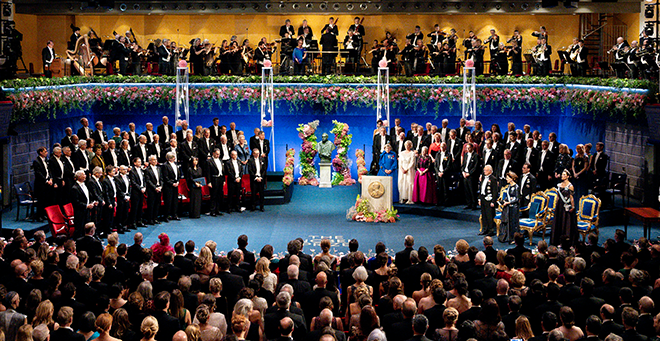
© Nobel Prize Outreach. Photo: Nanaka Adachi
Sandberg said that Ambros and Ruvkun’s work exemplifies how basic research can lead to unexpected yet vital advancements in biomedical knowledge.
“The laureates are excellent examples of how curiosity-driven basic research exploring fundamental questions about cellular and organismal function can advance our understanding of physiology and medicine in ways that couldn't have been predicted,” Sandberg said.
Chancellor Michael F. Collins and Terence R. Flotte, MD, the Celia and Isaac Haidak Professor, executive deputy chancellor, provost and dean of the T.H. Chan School of Medicine, were among the audience on hand for the Nobel Prize “watch party,” a live feed of the ceremony on the Albert Sherman Center auditorium’s projection screen to see Ambros receive a Nobel Prize diploma and medal from King Carl XVI Gustaf.
Following the award ceremony, the laureates celebrated at the Nobel Prize banquet at Stockholm City Hall.
Read more about Nobel Laureate Victor Ambros.
